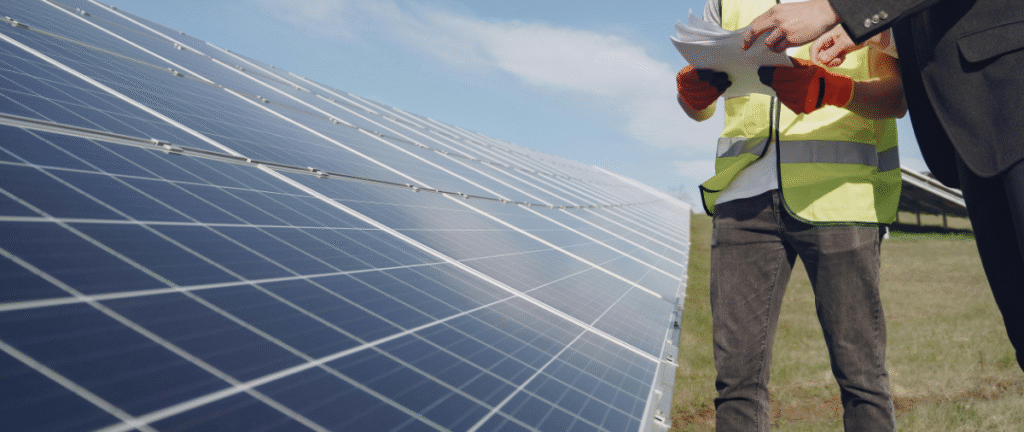How Businesses Can Save Big with Solar Tax Incentives

Switching to solar energy is no longer just about being eco-friendly—it’s about making smart financial decisions. For businesses of all sizes, installing solar panels can reduce electricity bills, boost brand reputation, and most importantly, unlock significant tax incentives. These tax benefits can dramatically lower the upfront cost of going solar, making renewable energy more affordable than ever before.
In this blog, we’ll break down the different tax incentives available for businesses, how they work, and why now is the best time to consider solar energy.
Why Tax Incentives Matter for Businesses
Investing in solar is a long-term commitment. While the technology pays for itself over time through energy savings, tax incentives shorten the payback period. For many businesses, these programs cover 30%–50% of the installation cost, creating immediate financial relief.
Tax incentives are also designed to encourage companies to invest in renewable energy, helping governments meet clean energy targets while businesses enjoy direct monetary benefits.
Federal Tax Incentives for Going Solar
1. The Investment Tax Credit (ITC)
The Solar Investment Tax Credit (ITC) is the biggest federal incentive available for businesses. As of 2025, companies can deduct 30% of the total cost of their solar system from their federal tax liability. This includes equipment, installation, and even certain soft costs like permitting.
For example, if your business installs a solar system worth $200,000, you can claim up to $60,000 back through the ITC. That’s money directly taken off your tax bill—not just a deduction of taxable income.
2. Bonus Depreciation (MACRS)
Another valuable benefit comes from the Modified Accelerated Cost Recovery System (MACRS). This allows businesses to depreciate the value of their solar investment faster, which reduces taxable income. Thanks to bonus depreciation, companies can write off up to 100% of their solar investment in the first year (depending on current tax laws).
This means immediate financial relief, making solar projects much more affordable upfront.
State and Local Solar Tax Incentives
Beyond federal programs, many states and municipalities offer additional solar benefits for businesses. These vary by location but may include:
- State tax credits – Similar to the federal ITC but applied to state taxes.
- Property tax exemptions – Prevents your solar system from increasing your property’s taxable value.
- Sales tax exemptions – Some states waive sales tax on solar equipment purchases.
- Grants and rebates – Direct cash rebates to offset installation costs.
For instance, states like California, New York, and Massachusetts are known for having some of the most generous solar incentives for businesses.
Real-World Savings Example
Let’s say your business invests in a $250,000 commercial solar system:
- Federal ITC (30%): $75,000 savings
- MACRS Depreciation (est. 25%): $62,500 savings
- State Incentives (varies, but assume 10%): $25,000 savings
Total incentives = $162,500 in combined benefits.
Your effective system cost is reduced to $87,500, making solar far more affordable than the sticker price.
Additional Benefits for Businesses Going Solar
Tax incentives are only part of the story. Businesses that invest in solar also gain:
- Energy savings – Reduced electricity bills can save thousands annually.
- Brand reputation – Going solar shows commitment to sustainability, which resonates with eco-conscious customers.
- Energy independence – Protects your business from rising utility costs.
- Compliance – Some industries are required to reduce carbon emissions; solar helps meet these goals.
Steps to Take Advantage of Solar Tax Incentives
- Consult a solar provider – Get a detailed proposal outlining costs, savings, and available incentives.
- Work with a tax professional – Ensure you maximize credits and comply with IRS requirements.
- File paperwork correctly – Claim your ITC and depreciation benefits when filing taxes.
- Check state programs – Research or ask your provider about local rebates and credits.
Why Now Is the Best Time to Go Solar
The 30% federal ITC won’t last forever. While current legislation has extended it through 2032, tax laws can change. Acting sooner ensures your business locks in maximum savings. Additionally, energy costs continue to rise, meaning every month without solar is money lost to the utility company.
Final Thoughts
For businesses considering solar energy, the numbers speak for themselves. With federal tax credits, accelerated depreciation, and state-level incentives, you can slash nearly half the cost of going solar. Beyond the financial savings, your company contributes to a greener future while building a reputation as a forward-thinking, sustainable brand.
Now is the time to take advantage of these tax incentives before they phase out or change. By going solar today, your business secures financial relief, long-term energy savings, and a competitive edge in your industry.